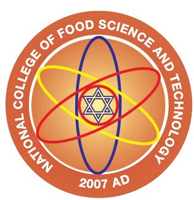Overview
B.Tech Food Technology at Padmashree College, Kathmandu (affiliated with TU)
Padmashree College offers a Bachelor’s Degree in Food Technology (B.Tech.), a four-year program affiliated with Tribhuvan University (TU). Padmashree was established with the vision of bringing the global standards of a Food Science College to Nepal and producing high-caliber scientific human resources.
Padmashree is the creation of dynamic professionals led by professionally trained and experienced faculty. The B.Tech. (Food) program, launched four years ago, is running successfully with massive support from students and guardians.
Food science is the end-to-end study of food, including raw materials selection and harvesting, composition and development, production, quality control, preservation and safety, packaging and storage, end-user preparation, consumption, and sensory analysis.
Food Technology is the application of food science to the selection, preservation, processing, packaging, distribution, and use of safe, nutritious, and wholesome food. Food Technology courses attract many students because they are novel educational courses and because of the growing demand for food technologists in today's health-conscious world.
Padmashree International College is dedicated and committed to excelling in Research & Innovation, Knowledge Dissemination, Technology Transfer, and Human Resource Development in Food Science and Technology through quality attributes to be practiced and implemented at all levels.
Scope of Food And Technology:
The production and distribution of food is the largest and most important economic activity in the world. The health and welfare of people everywhere depend on good agricultural yields and reliable storage, successful processing, and safe handling of all types of food.
Food professionals work in many occupations, including industry (manufacturing, retailing, and food service), universities and schools, government, research and development, quality assurance, and food law enforcement—but whatever their occupation, they are overriding responsible for the safety of the consumer.
All these activities, and many others, demand well-qualified and experienced specialists who can contribute to the complex and increasingly sophisticated food supply system.
A food technologist can get the job of a Quality Assurance Manager, Production Manager, or Research Associate in premier institutes, universities, and R&D units of different government and non-governmental organizations.
Fast-moving consumer goods (FMCG) multinational companies recruit food technologists periodically to bring about improvement in their products.
You can join various I/NGOs working on post-harvest developments, food security, and nutrition. The private and public sectors also provide lucrative job opportunities for food technologists.
You can also pursue your research work as a scientist abroad to formulate a new product range and enhance the existing portfolio of products in various food research institutes.
You can work as a sensory scientist to monitor organic properties like aroma, flavor, and more. Even companies abroad recruit food technologists to ensure and monitor the quality and hygiene of food products in their contamination and adulteration prevention units.
Besides, food technologists enjoy scholarships such as Fulbright, Erasmus Mundus, NFP, ADB, MEXT, etc., every year to complete their postgraduate and doctorate degrees in renowned Universities abroad.

Practical Training and Partnerships:
Padmashree has partnership agreements with different organizations to offer selected programs, training, and practical classes. Based on the public-private and private-private partnership approach, Padmashree has been strengthening collaboration with the national and international government as well as non-governmental and private institutions.
Padmashree plans to work with the following institutions to facilitate teaching, research, training, and information/publication sharing:
-
Nepal Agriculture Research Council (NARC)
-
Dairy Development Corporation (DDC)
-
Department of Food Technology and Quality Control (DFTQC)
-
Nepal Food Corporation (NFC)
The college also aims to make international tie-ups with research institutes and universities.
Based on the needs of various development institutions, government and non-governmental organizations, and individuals, Padmashree has planned to conduct multiple short-term training courses. Training courses are designed and conducted per the needs/demands of the concerned sectors, farming communities, agro-industries, and development workers/institutions.
Course Structure:
B. Tech. (Food) is based on the annual examination system and is a four-year course with a total of 2000 marks. In each subject (except Dissertation work), 25% of marks will be allotted to the practical work carried out in laboratories & pilot plants.
|
FIRST-YEAR |
|
|
Subjects |
Full Marks |
|
Physics |
100 |
|
Chemistry |
100 |
|
Math & Statistics |
100 |
|
Instrumental Technique of Analysis |
100 |
|
Basic & Food Microbiology |
100 |
|
Basic Principles of Engineering |
50 |
|
Total |
550 |
|
SECOND YEAR |
|
|
Subjects |
Full Marks |
|
Food Chemistry |
100 |
|
Principle of Food Processing |
100 |
|
Food Engineering (Unit Operation & Process Engineering) |
100 |
|
Bio-Chemistry & Human Nutrition |
100 (50+50) |
|
TFP-1 (Cereals, legumes, Oilseed, & Protein Foods |
100 |
|
Total |
500 |
|
THIRD YEAR |
|
|
Subjects |
Full Marks |
|
TFP-II (Fruits & Vegetables Chocolates 100 |
100 |
|
TFP-III (Meat, Fish & Poultry) |
100 |
|
Biochemical Engineering |
100 |
|
Industrial Microbiology |
100 |
|
Food Quality Control & Analysis |
100 |
|
Total |
500 |
|
FOURTH-YEAR |
|
|
Subjects |
Full Marks |
|
Storage & Packaging Technology |
100 (50 + 50) |
|
Operation Research & Food Plant Management |
100 |
|
Dairy Technology |
100 |
|
Dissertation |
100 |
|
IN-Plant Training & Class Seminar |
50 |
|
Total |
450 |
Contact Padmashree College's administrative office for detailed information on the B.Tech Food Technology course, including fees, scholarships, facilities, counseling, eligibility criteria, etc.















